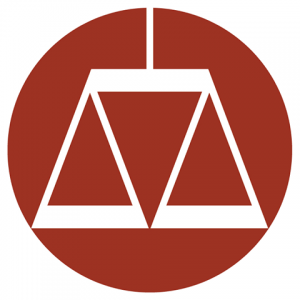Hate is on the rise here in America. I don’t believe anyone would argue that fact.
As the Washington Post reported recently, “police departments across the country reported a rise in the number of crimes motivated by bias.”
Hate eats away at my serenity and erodes the soul. It’s scary. Alone, I feel rather impotent against its power. That’s where my monthly support of the Southern Poverty Law Center helps. I’ve yet to find another organization that has the history of fighting hate that the SPLC has garnered. And in supporting them monthly for the past year, I’ve learned much.

Eruptions of hate generally produce one of two reactions: apathy (“It’s just an isolated act by some kooks”) or fear (“The world is out of control”). Before reacting, communities need accurate information about those who are spouting hate.
The Southern Poverty Law Center tracks hundreds of active hate groups in the U.S. Some are small — a handful of people — but armed with a computer, email, and a website their reach can be immense, their message capable of entering a child’s bedroom.
Through their literature and websites, hate groups spread propaganda that vilifies and demonizes African Americans, Latinos, Muslims, Jews, LGBT people and other groups. Like some of their fellow extremists in militia groups, they also sow fears of losing control of “their country” to a “One World Government” dominated by Jewish bankers, multinational corporations, and the United Nations.
More often than not, members of hate groups use other groups as scapegoats for their own personal failures, low self-esteem, anger, or frustration. They frequently use music or other means to recruit and indoctrinate disaffected teens.
Though their views may be couched in code words, members of hate groups typically share these extremist views:
- They want to limit the rights of certain groups they view as inferior.
- They want to divide society along racial, ethnic, or religious lines.
- They demonize the groups they hate with false propaganda and often outlandish conspiracy theories.
- They try to silence any opposition.
Most hate crimes, however, are not committed by members of hate groups; the Southern Poverty Law Center estimates [the figure is] fewer than 5 percent. Many hate crimes are committed by young males acting alone or in small groups, often for thrills. While these perpetrators may act independently, they are sometimes influenced by the dehumanizing rhetoric and propaganda of hate groups.
WHAT’S A HATE CRIME?
A hate crime must meet two criteria:
- A crime must happen, such as physical assault, intimidation, arson, or vandalism; and
- The crime must be motivated, in whole or in part, by bias.
The list of biases included in state or federal hate crime statutes varies. Most include race, ethnicity, and religion. Some also include sexual orientation, gender, gender identity and/or disability.
As you respond to a hate crime, check specific statutes in your area, then consider working to add missing categories, to protect vulnerable community members.
WHAT’S A BIAS INCIDENT?
A bias incident is conduct, speech, or expression that is motivated by bias or prejudice but doesn’t involve a criminal act.
WHAT’S THE DIFFERENCE?
Hate crimes, if charged and prosecuted, will be dealt with in the court system. They typically carry enhanced penalties, such as longer sentences. Bias incidents occur with no clear path or procedure for recourse. Both, however, demand unified and unflinching denouncement from individuals, groups, and entire communities.
WHAT’S THE IMPACT?
Hate crimes and bias incidents don’t just victimize individuals; they torment communities. When someone scrawls threatening graffiti targeting Asian Americans, for example, everyone in the community may feel frightened and unsafe, as may members of other ethnic or racial groups.
###

For more from the SPLC on fighting hate, click here.
I’d love to hear your thoughts.
Merril Smith
Important information, Janet, thank you. I also support the Southern Poverty Law Center.
Merril Smith recently posted…Lost at Sea: Yeats Challenge, Day 28
Janet Givens
Glad to hear it, Merril. Thanks for commenting.
Kathleen Pooler
Thanks for sharing this important and timely information, Janet and for letting us know about The Southern Poverty Law Center. Calling these incidents and crimes what they are is the first step in raising awareness and dealing effectively with them.
Janet Givens
Well put, Kathy. Thanks.
Laurie Buchanan
Janet — Your blog is an excellent resource. Thank you so much for introducing me to the Southern Poverty Law Center. I’ve learned so much in this post.
Laurie Buchanan recently posted…In the Crapper
Janet Givens
I’m so pleased you think so, Laurie. Thank you